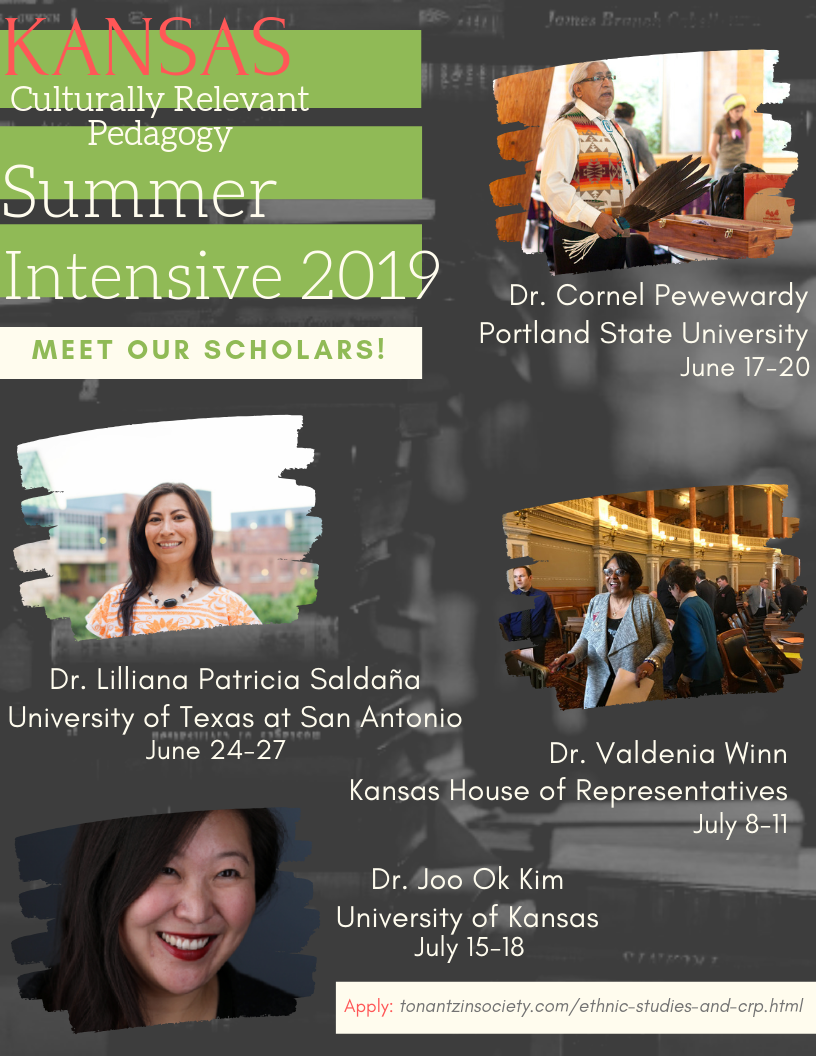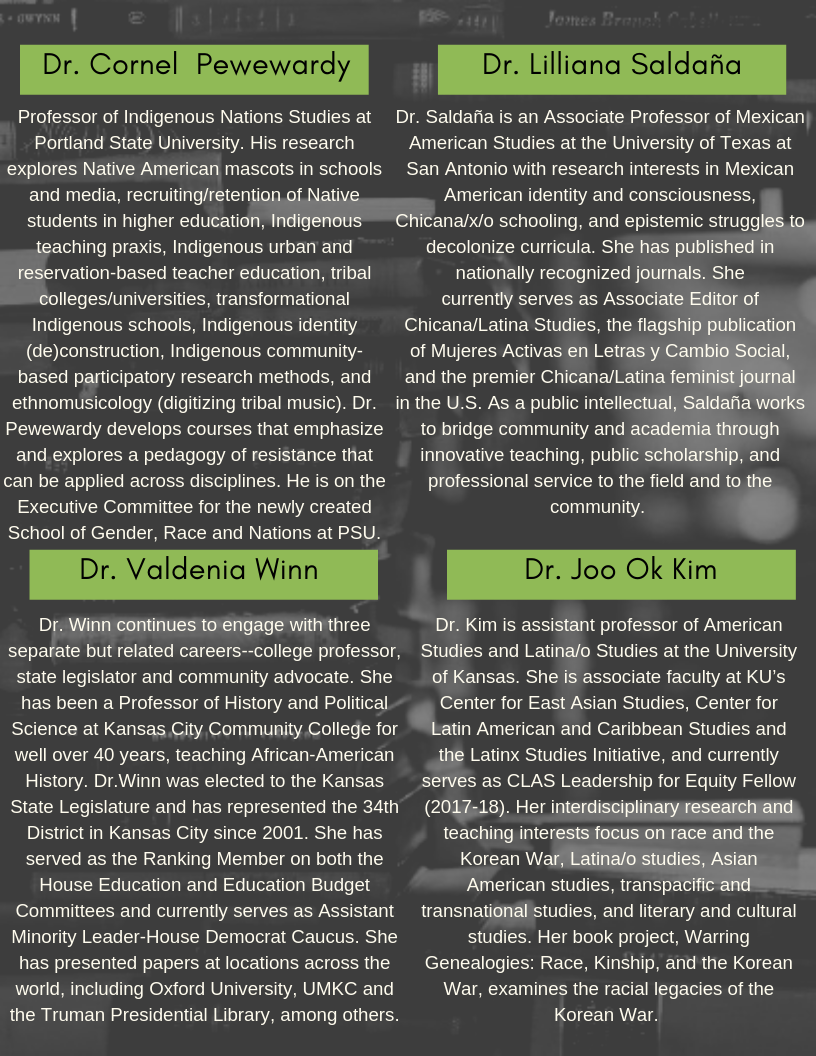Culturally Relevant Pedagogy
“It is not our differences that divide us.
It is our inability to recognize, accept, and celebrate those differences.”
Importance of teaching Culturally Relevant Pedagogy:
Students find connection to the content
Curriculum will reflect accurate historical narratives and lived experiences.
Inequality is better understood, which leads to better social justice action.
Students of color show better attendance, higher GPA, and more credits earned.
Across the nation and here in Topeka, 2019 marks the 65th Anniversary of the historic Supreme Court decision, Brown v. Board of Education. This case ruled that separate but equal was unconstitutional. Even though racial segregation was from that point on unlawful, challenges remain daunting to this day in providing all children with the best public school education possible.
We have provided links to articles in Topeka's Capital Journal highlighting a number of barriers children face in Kansas schools. Our Culturally Relevant Pedagogy Project can help reduce these barriers, we believe CRP can also help close the achievement gap and aid in creating the global student.
Additional Resources:
TOPEKA SCHOOLS STILL WORKING TO DISMANTLE DISPARITIES
DISCUSSION ABOUT RACE IN SCHOOLS CAME LATE IN GARDEN CITY
CHALLENGE IN HAYS LIES IN FUNDING SPECIAL EDUCATION
NEWTON DISTRICT'S STAFF NOT REFLECTIVE OF GROWING STUDENT DIVERSITY
PITTSBURG SCHOOLS FOCUS ON PROGRAMS, HELP TO ALL STUDENTS IN NEED
COURT NUDGES PUBLIC SCHOOLS TOWARD EQUITABLE EDUCATIONAL OPPORTUNITY
On March 25th, 2019 Tri-Directors honored sponsors and partners of the historic Culturally Relevant Pedagogy Project. We gathered together for a morning reception then down to the legislative Kansas House floor for a proclamation and certificates of appreciation. Thank you to all for making CRP in Kansas Public Schools possible!
For more extensive reading on recent research about Culturally Relevant Pedagogy,
you can begin by accessing the articles below.
Does Culturally Relevant Teaching Work: An Examination From Student Perspectives
The current study asks whether culturally relevant teaching works by considering student perceptions of classrooms that vary in the amount of culturally relevant practices.
Pathways to Social Justice: Urban Teachers’ Uses of Culturally Relevant Pedagogy as a Conduit for Teaching for Social Justice
This article explores issues surrounding teaching for social justice in urban schools. Using qualitative methods, our study examined the ways in which seven urban teachers used culturally relevant pedagogy as a mechanism for teaching for social justice.
Social justice in the social studies classroom: Using culturally relevant pedagogy to promote civic engagement
This issue should be one important to all educators, but especially those concerned with social studies because approaching their fields using culturally relevant pedagogy can help all students, no matter their age, gender, or race, see themselves in the content.
The Academic and Social Value of Ethnic Studies
Ethnic studies includes units of study, courses, or programs that are centered on the knowledge and perspectives of an ethnic or racial group, reflecting narratives and points of view rooted in that group's lived experiences and intellectual scholarship.
The Causal Effects of Cultural Relevance: Evidence From an Ethnic Studies Curriculum
An extensive theoretical and qualitative literature stresses the promise of instructional practices and content aligned with the cultural experiences of minority students.
For further questions, comments, or to continue the conversation, please email us!
Meet our 2019 Scholars:
Thank you to our CRP Sponsors and Partners:
Kansas State Department of Education (partners)
Kansas State Board of Education (partners)
Washburn University (sponsor/partner)
Prairie Band Pottawatomie Nation (sponsor)
Sac & Fox Tribes (sponsor)
Walmart (sponsor)
Kansas Beverage Association (sponsor)
Golden Corral (sponsor)
Advisors Excel (sponsor)
Capitol Federal Foundation (sponsor)
Westar Energy (sponsor)
Pepsico (sponsor)
COX Cable (sponsor)
Tonantzin Society (sponsor/partner)
The Tri-Directors are:
Kansas Representative Valdenia Winn, Phd.
Kansas Representative John Alcala
Tonantzin Founder/Director Christina Valdivia-Alcala
1st Year Scholars Teaching CRP to Kansas Public School teachers:
Dr. Elisabeth Valenzuela
Dr. Kiran Kitara
Dr. Valdenia Winn
Dr. Cornell Pewewardy
2nd Year Scholars Teaching CRP to Kansas Public School Teachers:
Dr. Cornel Pewewardy
Dr. Lilliana Saldaña
Dr. Valdenia Winn
Dr. Joo Ok Kim











